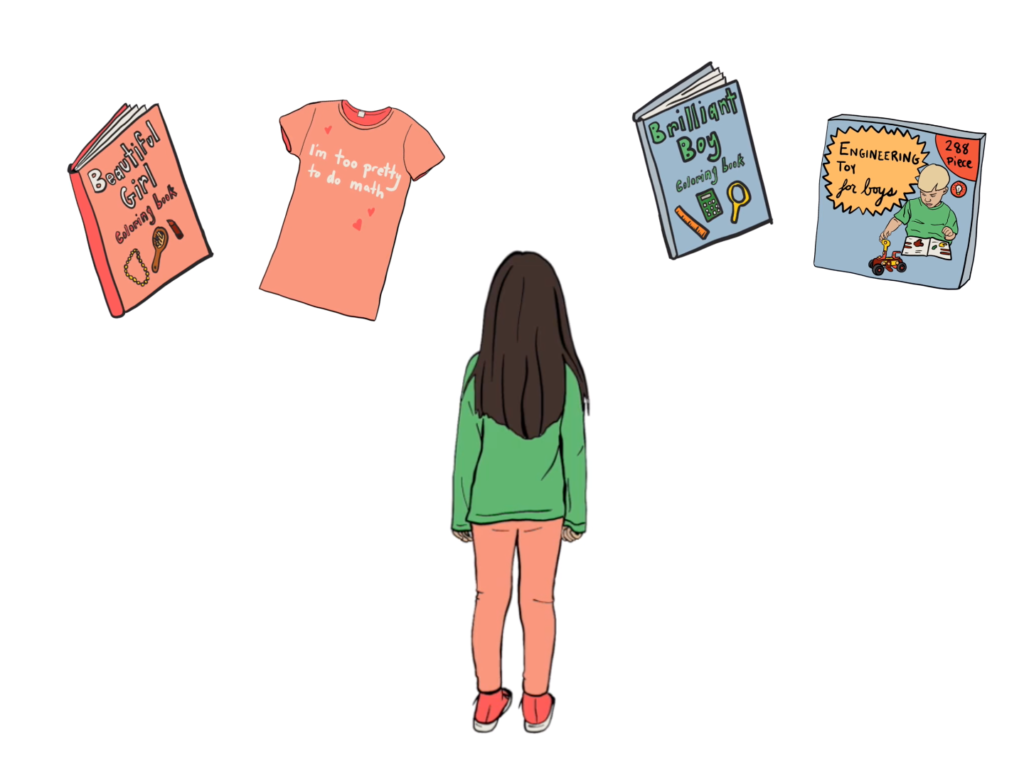
The idea that our sense of self affects our learning can seem abstract. Let’s make it a little more concrete. The research on this is important – and really interesting.
Children’s beliefs about themselves are influenced by other people’s beliefs. One of the most powerful influences on children are stereotypes that the adults in the culture hold. Stereotypes are widespread beliefs, often oversimplified, about categories of people. For example, there is a stereotype that boys are better at math than girls are. You can see evidence of this stereotype everywhere – from the media, to toys, to what adults do and say every day. And children are paying attention. By age 7, children understand stereotypes, and report that “math is for boys.” By age 9, these stereotypes affect what they believe about themselves, including their interests, choices, and aspirations.
Researchers began wondering whether stereotypes might influence children even before they fully understood them. In other words, could stereotyped messages make a child believe that their backpack was less full than it really was?
-
- Academic sense of self
- how a person thinks of themself as a student
- Bias
- the belief that some people or ideas are better than others, usually resulting in unfair treatment
- BIPOC
- Black, Indigenous, people of color
- Conscious
- thoughts or feelings that we are aware of
- Growth mindset
- the belief that, with effort, you can learn and achieve new things.
- In-group preference
- the tendency to form close relationships with others in a person’s same groups
- Self-esteem
- a cluster of characteristics, such as feeling confident, having pride in oneself, and a sense of self-worth
- Sense of self
- how a person thinks and feels about their self
- Stereotype
- a widespread belief that a person must have a trait because they belong to a particular group
- Unconscious
- thoughts or feelings that we are unaware of